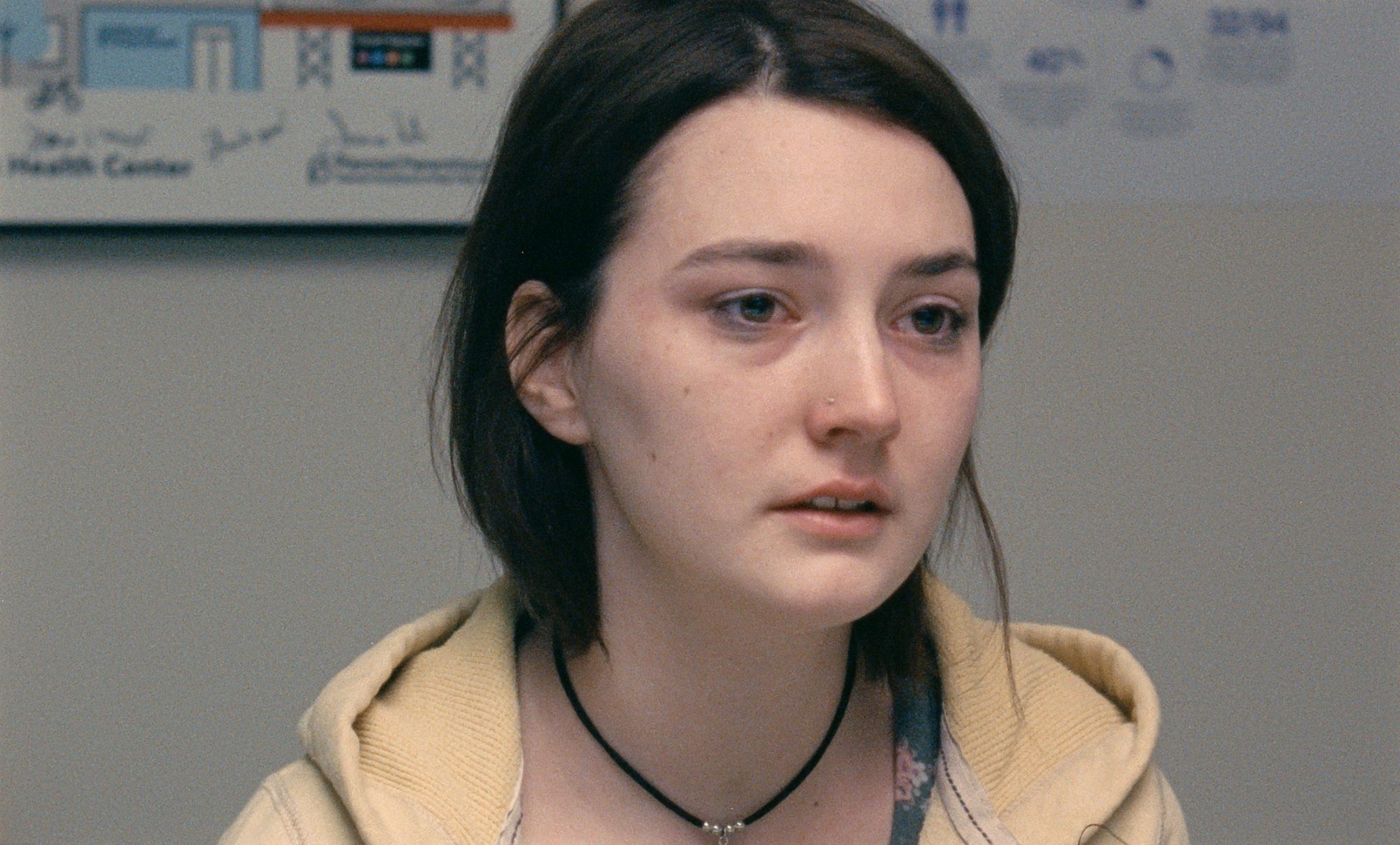From its festival debut earlier this year to its streaming premiere this weekend on VOD, the much-praised Sundance Silver Bear Grand Jury Prize winner Never Rarely Sometimes Always, about a pregnant Pennsylvania teen who travels to Manhattan for an abortion, has been widely embraced as one of the year’s strongest dramas (and perhaps given the movie year we’ve had to date there is some truth to this). Yet as effective as Eliza Hittman’s admittedly gritty picture sometimes plays, I found it to mostly be a social realist Afterschool Special with little new or of interest to say on the subject.
Small indies can be infinitely impactful—think Frozen River, The Visitor, The Last Black Man in San Francisco, The Mustang, to name a mere few—but despite some individual merits, this one doesn’t quite get there. Modestly scaled and mundane are two different things, and the latter is how this well-intentioned picture plays. It may be honest and authentic, but it is not a satisfying drama. It’s so low-key it is often hard to feel engaged.
Picture opens in rural Pennsylvania where high school senior Autumn (Sidney Flanigan) performs a bluesy guitar ballad in the high school talent show, and young star Flanigan has a terrific voice and real musical talent. At home, withdrawn Autumn doesn’t connect with a distracted yet supportive mother (Sharon Van Etten) or antagonizing step-dad (Ryan Eggold), and her life outside the house is daily monotony, a routine of school and working checkout at the local supermarket alongside her sunnier cousin, Skylar (a winning Talia Ryder).
When Autumn goes to a local clinic for a pregnancy test and turns up positive, she opts for an abortion: “I’m not ready to be a mother.” But as a minor in Pennsylvania she’s unable to have the procedure completed without parental consent, so she and Skylar scrape up some cash and head to New York, where she’s assured the procedure will be no issue.
Well, it isn’t quite that simple, and like all good screenplays this one continuously ups the ante of obstacles as the pair navigates Manhattan’s myriad complexities with no money, no shelter (they spend most of their time in the Port Authority), no friends and eventual fissures in their relationship. And then there’s the matter of the procedure itself, more expensive, complex and time-consuming than initially expected.
Hittman does well commenting on the healthcare system and the challenges faced by young women in Autumn’s predicament, and the filmmaker has firm grasp on the spoils of a pair of lower middle-class teens without resources, in need of compassion, a little grace, and of course, money. In its own way, it is a valuable movie, given the precarious balance in the United States around the fragility of a women’s right to choose, and thoughtful about how much darker things could get for an Autumn should we see a reversal of status quo.
There is also a simple yet important subplot playing out in a minor character the cousins meet on the bus to New York. Initially, the sort of geeky guy next door (Théodore Pellerin) seems harmless enough, but when the chips are down for trusting young women, he is not above exploitation. He flirts with Skylar, they exchange numbers and while she has no intention of seeing him again, desperate times force her hand and at one sad moment, require an unexpected sacrifice. Ryder, a terrific young actress, smartly navigates this moment, a necessary evil which concludes in a tender moment amongst the film’s best.
Hittman’s deliberate minimalist, in-the-moment realism here renders any backstory unclear, leaving us to wonder if Autumn has recessed from a prior trauma or if her demeanor of malaise is merely rooted in teenaged attitude. Hittman also does a good job capturing the laconic rhythms of natural teenaged speak, a sort of mumbled, clipped, aggravated disaffection that is miles from written dialogue, and closer to documentary than fabrication.
And Flanigan’s understated, underplaying approach to give and say as little the world (and us) as possible feels highly authentic and never acted. But as a movie character, it isn’t always engaging and can feel remote, or inaccessible, a challenge with a movie protagonist in such a high stakes dilemma.
For those who have seen Romanian filmmaker Christian Mungui’s powerhouse 2007 suspenser 4 Months, 3 Weeks, 2 Days, about the terror of two friends trying to procure an illegal abortion under the threat of a communist bloc retribution, will be reminded of that much stronger film’s sense of doom. By contrast, Never Rarely Sometimes Always is a quieter, lower key affair with obviously less pronounced antagonists.
The picture punches through beautifully in two moments—during an invasive intake survey by a Manhattan clinician that gives the film its title, as Autumn is required to answer a series of probing questions about her emotional state and her sexual partners, done in a single, long-take reaction shot that has a startling, cumulative power and release. This comes at the hour marker, and if up to this point the film hasn’t been all that forthcoming about its troubled anti-heroine, her reactions to the difficult questions—which require responses of “never,” “rarely,” “sometimes” or “always”–tells us everything we know about where she’s been.
Never Rarely Sometimes Always is an occasionally affecting movie about female loyalty and agency, but I mostly found it a plodding trek toward a preordained conclusion. And while moments of the film are compelling, its cartwheel reception seems curious, in my view, and more an endorsement of its point of view and subject matter than about anything revelatory in the material or its cinematic treatment, an observance more than a dramatization.
2 1/2 stars.



